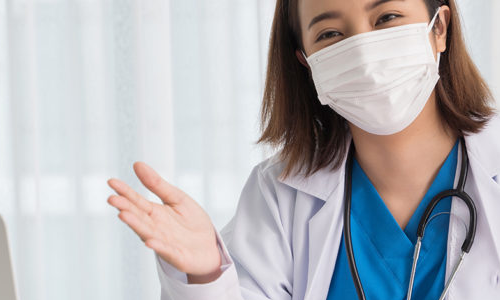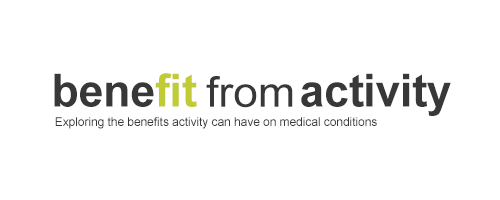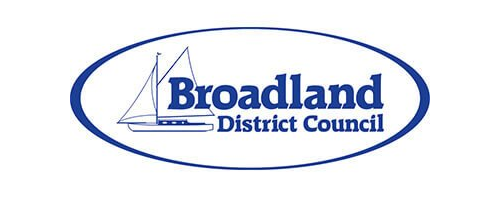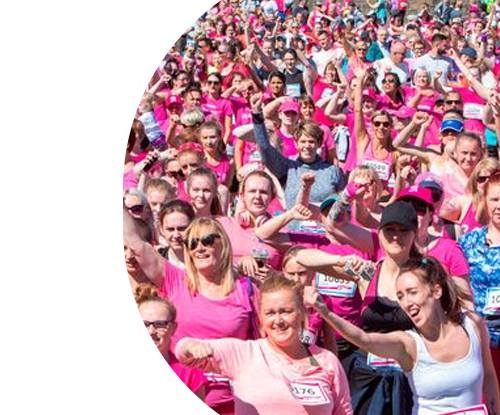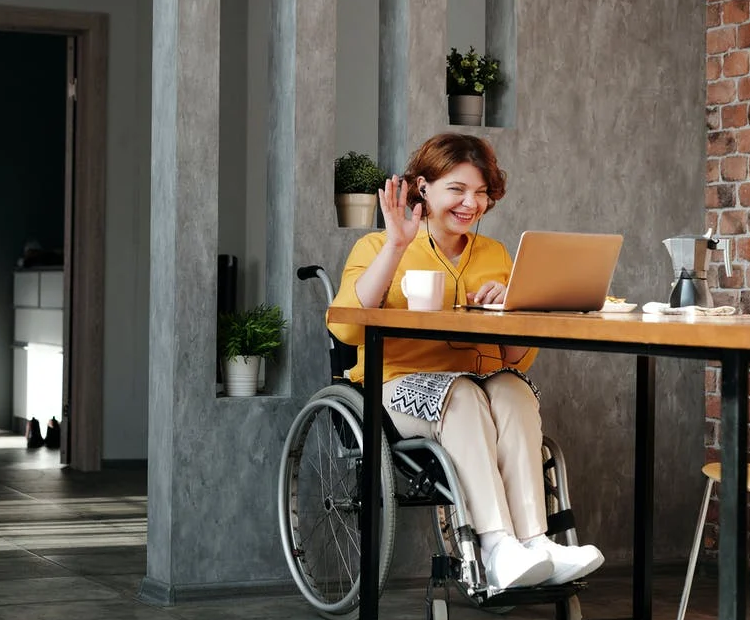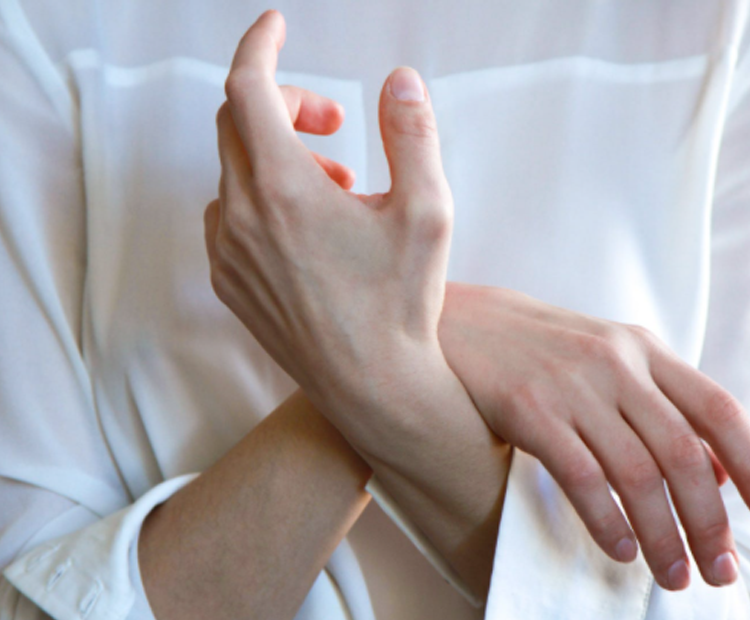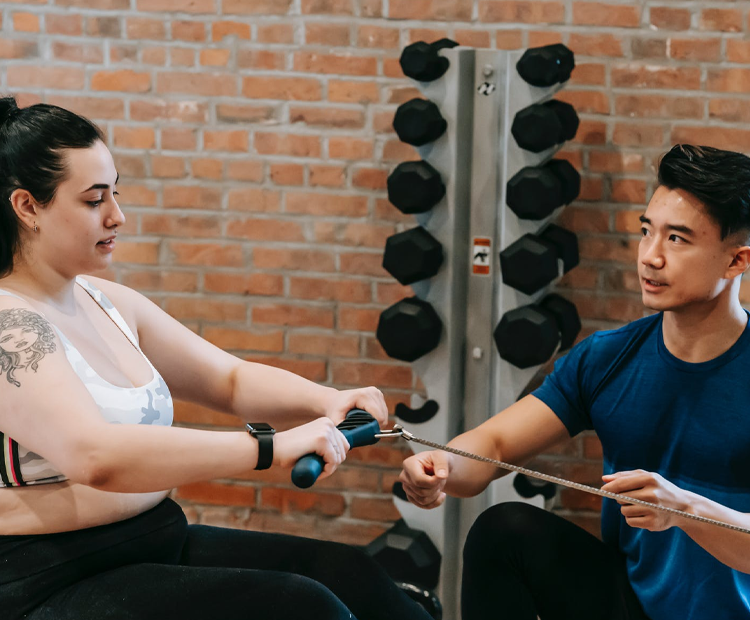Should I exercise with cancer?
Last updated December 2021
Being physically active can not only help prevent many forms of cancer, it can be used as a method to manage the symptoms and even aid in the treatment of those living with it. As with everyone else, the recommendation is still to aim for 150 minutes of physical activity per week.
There’s no ‘one size fits all’ answer to exercising with cancer; some will find they are more able to do more physical activity than others, depending on the type, stage and various other factors. The most important thing is to listen to your body. If something hurts, then stop doing it.
We have resources for all abilities, so there will be something to suit you and help keep you physically active whilst living with cancer.
Living with Cancer
This section is designed for those who are living with or supporting someone living with Cancer. It focuses on the ways to manage it in your day to day life, and most effectively incorporate physical activity into your day safely.
If you are a healthcare professional looking for referral resources, click here.
How can physical activity help those living with cancer?
Increased self-esteem and confidence
Reduces risk of further health complications
Prevent muscle loss and build strength
Prevent weight gain and obesity
Helpful tips for keeping active with cancer
Remember to start small. The biggest improvements come from making small changes that you can increase safely and incorporate into your daily routine.
This could be taking the stairs rather than the lift, or parking at the back of the car park not by the door. We’ve also incorporated some videos from Big C to get you started. You can find more of these here.
There may be activities you need to avoid or be careful with. There may also be some weeks when you have to do less, such as immediately after chemotherapy. It is important not to suddenly start intense exercise that you are not used to.
Try to be active everyday – do a little even when you’re tired, and reduce the amount of time you spend sitting or lying down.
You can also modify the type of exercise that you do depending on the type of cancer and treatment you’re receive
For example, this could mean avoiding cycling if you have recently had prostate/rectal cancer surgery or avoid high impact activities if you have cancer in your bones). See our ‘When to avoid exercise‘ section for more, or click below to get more suitable exercises to get active.
When to avoid exercise
People with certain types of cancer or having particular treatments might need to avoid some types of exercise. Your GP or specialist LTC Healthcare Professional should be able to advise on your specific case. However there are some situations where you need to take extra care.
For example, if you have stomach or other digestive system cancers, or cancer that has spread to the bone, you should avoid heavy weight training.
Some other examples include:
Bone cancer
Bone cancer
If your illness is affecting your bones, you might be more at risk of a break or fracture. You must avoid putting too much strain on the affected bones, so avoid high impact exercises. You could try swimming or exercising in water. Exercise such as yoga are also generally safe for everyone.
Low immunity
Low immunity
People with low immunity due to treatment should avoid exercising in public gyms & pools. Ask your medical team when it is safe to start exercising in the gym with other people, and if possible stick to local walks or spend time in the garden.
Peripheral neuropathy
Peripheral neuropathy
Some people have loss of sensation, or feelings of pins and needles, in their hands and feet due to cancer treatments. This is called peripheral neuropathy. If you have this it might be better to use a stationary bike than to do other types of weight bearing exercise.
Breast cancer
Breast cancer
Women with breast cancer can do upper body training but it should be done very slowly. Always listen to your body and stop if you feel discomfort.
Visit your GP or specialist LTC Healthcare Professional for a check-up if you haven’t exercised before; if returning from injury or if you’re returning to exercise after a long break. Always seek advice from you GP or local level 4 cancer and exercise specialist (available locally through the Big C or some exercise referral programs) & if advised do not exercise.
What support is available?
Fortunately, our understanding of cancer grows each year. There are many charities and organisations to provide support, so if you or a loved one are suffering, you won’t have to feel alone. We’ve listed some key websites and resources to help out below.
If you’ve recently been diagnosed with cancer, you may feel scared and isolated. The best way to handle these feelings is to reach out to a friend or loved one, however there are various resources online that are also here to help:
Many studies link a higher recovery rate in people who are more physically active. In fact, exercise is one of the best you can do for your health after being diagnosed with cancer.
If you’re looking to get active whilst living with cancer, we can help. Our existing guidance and resources to get active with cancer are relevant and applicable, and there are several other toolkits out there to help:
If you’ve recently been diagnosed, you may not have had a chance to ask all the questions you need to yet. This is very common, and thankfully there are lots of resources online to guide you through what’s happening:
For Healthcare Professionals
We’ve listed some key information about the science behind how being physically active can help, as well as some resources which you can download or signpost patients to.
For further information about having conversations with people living with cancer and physical activity please visit Moving Medicine and our E-learning page for directive conversation support.
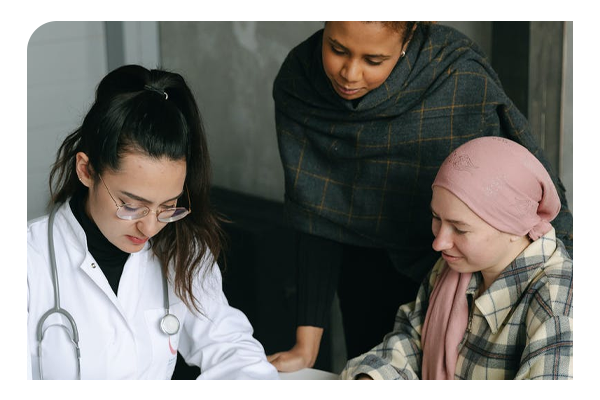
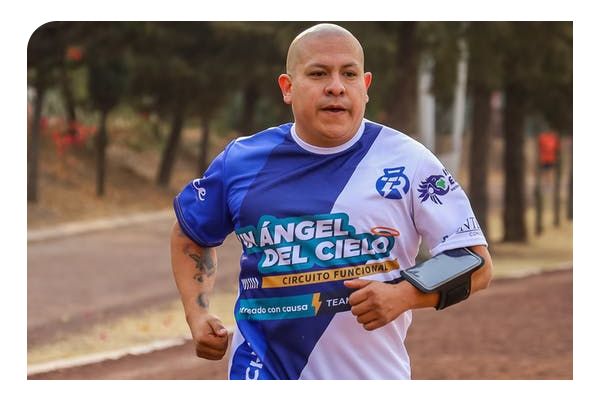
How can being active reduce the risk of cancer?
Healthy Weight – Studies suggest that being overweight puts you at higher risk of certain cancers. A regular exercise regime will help you maintain a healthy weight, whilst providing several other benefits
Protein – A specific antigen or PSA is a protein produced by cells of the prostate gland. PSA level which is measured in the blood can help show if prostate cancer is growing.
Early data suggests that exercise might be beneficial in terms of helping regulate the way that cells grow and repair DNA. There is some evidence to suggest that physical activity can be a good tool to stop it returning.
Osteoporosis– Weight bearing exercises such as running and lifting help to prevent thinning of the bones, which in turn protects against Osteoporosis.
Digestion– Being active speeds up digestion and helps move food through our bodies faster. This reduces the amount of time any potentially harmful substances which can be found in food waste are in contact with our bowel, helping to prevent complications.
Inflammation: Being active also helps control levels of inflammation in the bowel. Inflammation is a normal way our bodies respond to damage. But if there is too much, it can cause our cells to multiple more often, which increases the risk.
Hormones – Being active can help regulate hormone levels. Increased levels of certain hormones can increase your chances of getting cancer. Cancer starts when cells divide too much and multiply out of control. Hormones such as oestrogen could encourage cells in the breast to divide more often. If you’re doing a lot of activity it can reduce the levels of oestrogen, which helps to prevent breast cancer.
Insulin could also affect how cells multiply. Being very active can reduce levels of insulin and therefore help reduce the risks of cancer.
For more, check out the resource bank below or the NHS page on cancer.
